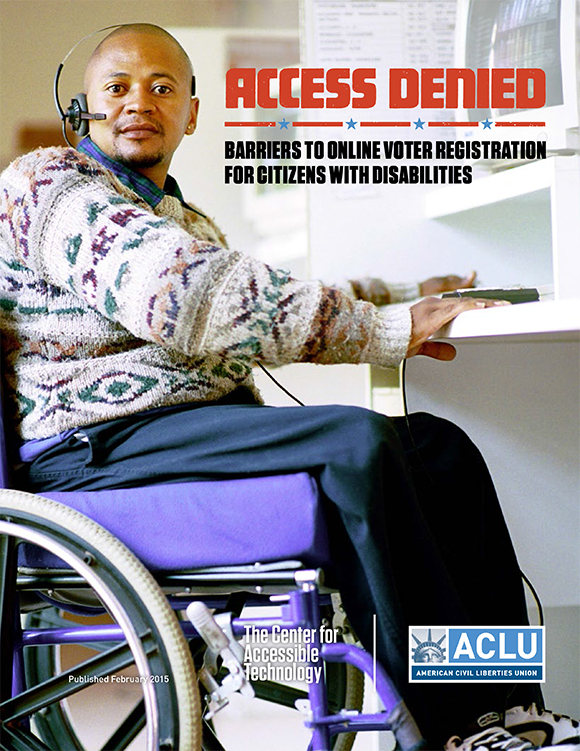PFW has given a grassroots award to the Ohio ACLU Foundation. Did you know that one in five people eligible to vote has a disability? Making sure these citizens can register to vote online removes the need for a time-consuming trip to the Department of Motor Vehicles, and is also required by the Americans with Disabilities Act. About one in ten potential voters needs an accessible website. Barriers to the Internet are most frequent for the 8.1 million Americans who have difficulty seeing, the 6.7 million people who have difficulty grasping objects such as a mouse or typing on a keyboard, and the approximately 10.6 million adults who have some type of cognitive or learning disability. As you can see the spectrum of disability experiences is extremely broad.
There is growing consensus on the many advantages of online voter registration.1 For election officials, the online efficiencies translate into reduced administrative burdens, increased accuracy of data, and potentially millions of dollars in cost savings.2 For eligible voters, an online voter registration system is quick, convenient, and accurate. Perhaps most importantly, according to the Social Science Research Council, “while about 51 million eligible adults, or about one in four U.S. citizens, are not registered to vote, the evidence is clear that online voter registration is helping to increase voter franchise and build a more robust and vibrant democracy.”
There are two reasons that online voter registration sites must be accessible:
- It is a good idea: People with disabilities constitute 19 percent of eligible voters. Those most likely to experience barriers online are people with visual disabilities, cognitive disabilities (such as traumatic brain injury), learning disabilities, and limited mobility of arms and hands.
- It is the law: Title II of the Americans with Disabilities Act (ADA) requires all state and local government entities to ensure that people with disabilities have equal access to government programs and services. The ADA also requires equally effective communication. An online voter registration system is such a program and service, and the information it communicates must be equally available to people with disabilities.
So, what is an accessible website? An accessible website is one that allows all users to access its information, navigate with ease, and interact as needed. For example, an accessible website accomplishes the following:
- It allows people with visual disabilities to use screen readers, which translate the text and navigation features on the website to speech.
- It allows people with limited hand or arm mobility to navigate the site without having to use a mouse, but through the use of a keyboard or voice commands.
- It provides people with hearing disabilities, or certain processing disabilities, with a written version of auditory content.
- WWW.ACLUOHIO.ORG




